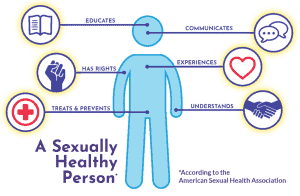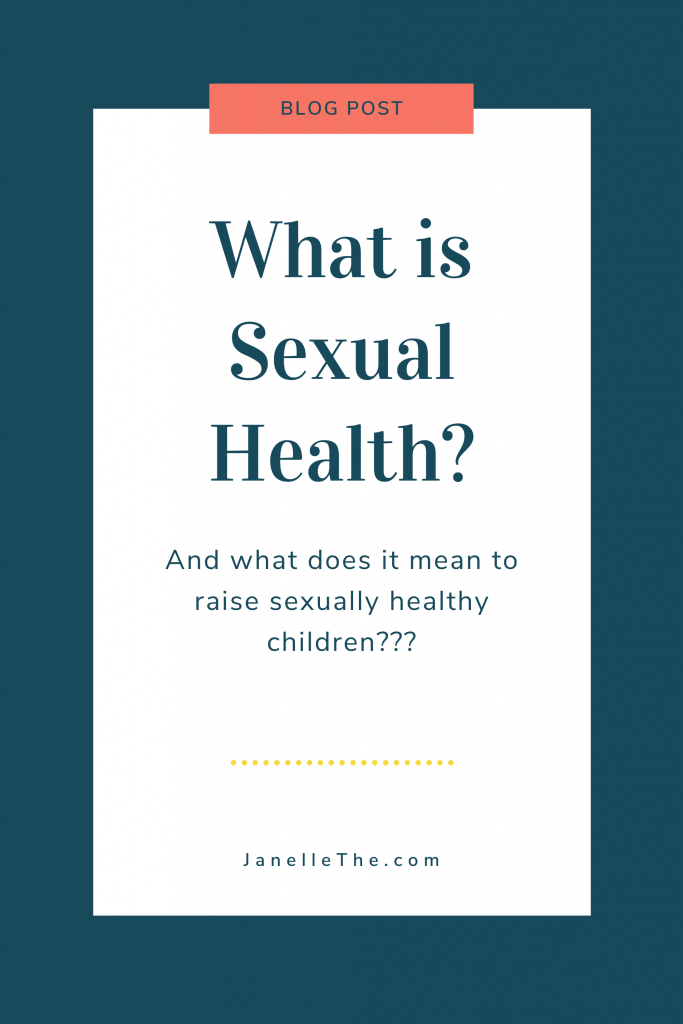Sexual health means a state of physical, emotional, mental, and social well-being in relation to sexuality. It involves safe and satisfying sexual experiences.
Sexual health is a vital aspect of overall well-being. It encompasses more than just the absence of disease or dysfunction. A positive approach to sexuality includes respectful and consensual relationships. Individuals should have access to accurate information and services. Safe practices and the ability to make informed choices are essential.
Sexual health also involves the right to seek healthcare services. Education plays a crucial role in promoting sexual health. Understanding and addressing sexual health can improve quality of life. It is important for individuals of all ages and backgrounds.
Introduction To Sexual Health
Sexual health means feeling good about your body and relationships. It involves understanding and respecting your own and others’ boundaries. Knowing how to protect yourself from sexually transmitted infections is important. Feeling confident and safe in expressing your sexuality is also part of it.
Good sexual health boosts your self-esteem and mental health. It helps you form stronger and happier relationships. Being informed and safe keeps you free from diseases. Enjoying a healthy sex life contributes to your overall happiness.

Credit: m.youtube.com
Physical Aspects
Sexual health involves understanding physical aspects like maintaining hygiene, preventing infections, and ensuring safe practices. Proper knowledge of these factors promotes overall well-being and confidence.
Reproductive Health
Good reproductive health means your body can make babies. It also means you know how to keep your body healthy. Eating well and exercising are important. Regular doctor visits help, too. Doctors can check if everything is working well. It’s important to talk to your doctor about any problems.
Preventing Stis
STIs are infections you can get from sex. Using condoms can help stop STIs. Getting regular check-ups is important. Some STIs do not show signs. Doctors can find them with tests. It’s good to talk to your partner about STIs. Both should be tested. This keeps both safe and healthy.
Emotional And Mental Health
Sexual health encompasses emotional and mental well-being, ensuring healthy relationships and personal satisfaction. It involves understanding consent, communication, and respecting boundaries.
Sexual Satisfaction
Good sexual health includes sexual satisfaction. Feeling satisfied in sexual activities boosts emotional well-being. It builds stronger relationships. Communication with your partner is key. Open talks about likes and dislikes improve satisfaction. Respect each other’s needs and boundaries. Feeling safe and valued is essential. Both partners should feel pleasure and joy. Mutual satisfaction creates a stronger bond.
Addressing Mental Health Issues
Mental health is a big part of sexual health. Stress and anxiety can affect sexual desire. Seeking help for mental health issues is important. Therapy or counseling can provide support. Healthy mind leads to a healthy sexual life. Self-care practices like exercise help reduce stress. Good sleep and diet improve mental health. Mindfulness activities like meditation can also help. Take time to relax and unwind.
Social And Cultural Influences
Society plays a huge role in shaping sexual health. Norms and values influence beliefs about sex. These beliefs can affect how people view their own sexual health. Some societies promote open discussions. Others may consider it a taboo topic. Open societies can lead to better awareness. Taboo societies might cause misinformation.
Different cultures have unique views on sexual health. Some cultures encourage early education on the topic. Others may delay or restrict it. Religious beliefs also impact sexual health perspectives. In some cultures, marriage is a key factor. In others, individual choice is more valued. Traditions and customs can either support or limit understanding. Cultural diversity leads to varied sexual health practices.
Education And Awareness
Sex education helps children and teens learn about their bodies. It teaches them about healthy relationships. Students learn how to protect themselves from diseases. They understand the importance of consent. Sex education helps them make informed choices. It also promotes respect for others.
Public health campaigns spread important messages. They teach people about safe sex practices. Campaigns focus on prevention of diseases. They provide information on contraceptives. These campaigns reach a wide audience. They help reduce the spread of infections. Public health campaigns also promote regular check-ups.

Credit: www.pandiahealth.com
Barriers To Sexual Health
Many people face stigma about their sexual health. This can cause shame and fear. They might not talk about their issues. Discrimination also plays a big role. Some people are treated unfairly because of their sexual health needs. This can stop them from getting the help they need.
Many people can’t find sexual health services nearby. Some don’t know these services exist. Others can’t afford them. Lack of education also affects access. People need to know where to go and what help they can get. Transport issues can make it hard to reach services. Privacy concerns also stop people from seeking help.
Promoting Healthy Relationships
Consent means saying “yes” to things you want. Communication is talking and listening to each other. Both are important in relationships. Always ask if something feels right. Respect the answer you get. Never push someone to say “yes”. Clear communication helps build trust. It also prevents misunderstandings. Use simple words to express your feelings. Make sure both people understand each other. This helps create a safe and happy relationship.
Healthy boundaries mean knowing your limits. It is important to respect your partner’s limits too. Say “no” if something feels wrong. Your partner should respect your “no”. Set rules for what is okay and what is not. This keeps both people comfortable. Boundaries help you feel safe and respected. They also help you grow together in a healthy way.

Credit: janellethe.com
Future Directions
Technology in health care is growing fast. Telemedicine lets people talk to doctors from home. New apps can track sexual health. AI helps in diagnosing diseases early. These tools make health care more accessible.
New laws can improve sexual health. Governments can offer free screenings. Education programs in schools teach kids early. Policies can help reduce stigma. Everyone should have equal access to care.
Frequently Asked Questions
What Do You Mean By Sexual Health?
Sexual health refers to a state of physical, emotional, mental, and social well-being in relation to sexuality. It includes safe and consensual sexual experiences, access to sexual health services, and understanding of sexual rights and responsibilities.
What Is Understanding Your Sexual Health?
Understanding your sexual health involves knowing about safe sex practices, STIs, contraception, and maintaining healthy relationships. It includes regular check-ups and open communication with partners and healthcare providers. Prioritize education and awareness to ensure a healthy sexual life.
What Are The 5 Components Of Sexual Health?
The 5 components of sexual health are physical well-being, emotional well-being, social well-being, sexual rights, and safe sexual practices.
What Is Unhealthy Sexual Health?
Unhealthy sexual health includes STIs, lack of consent, painful intercourse, and psychological issues. It affects overall well-being.
Conclusion
Understanding sexual health is vital for overall well-being. It encompasses physical, emotional, and social aspects. Prioritize communication, consent, and regular health check-ups. Embrace education and open dialogue to foster healthy relationships. Empower yourself with knowledge to lead a fulfilling life.
Remember, sexual health is a crucial part of your overall happiness and wellness.